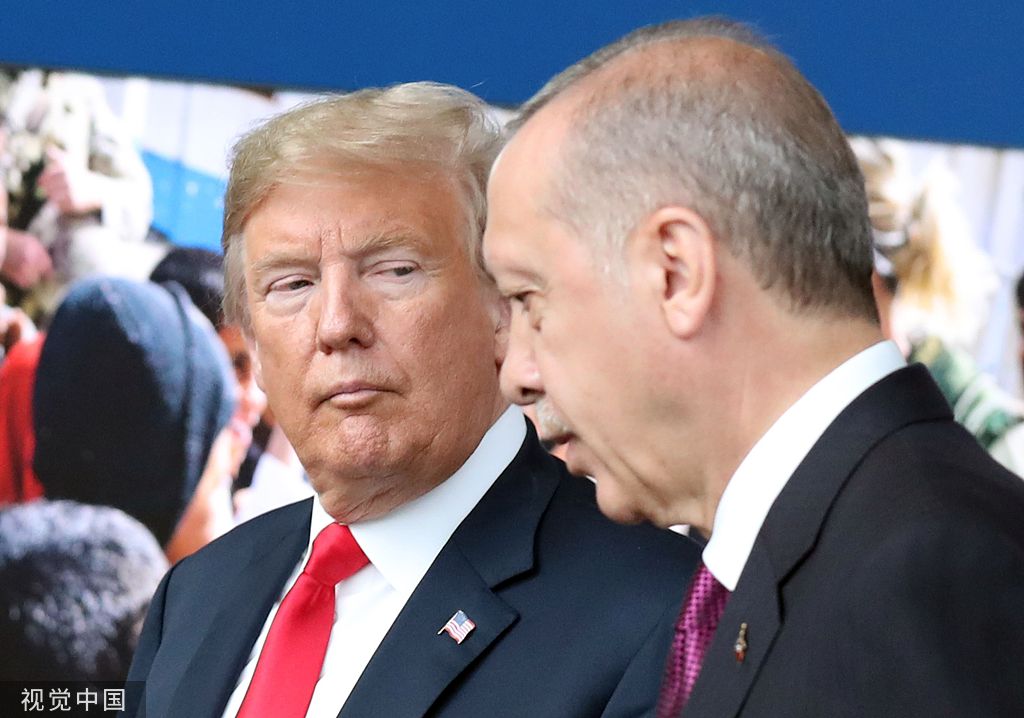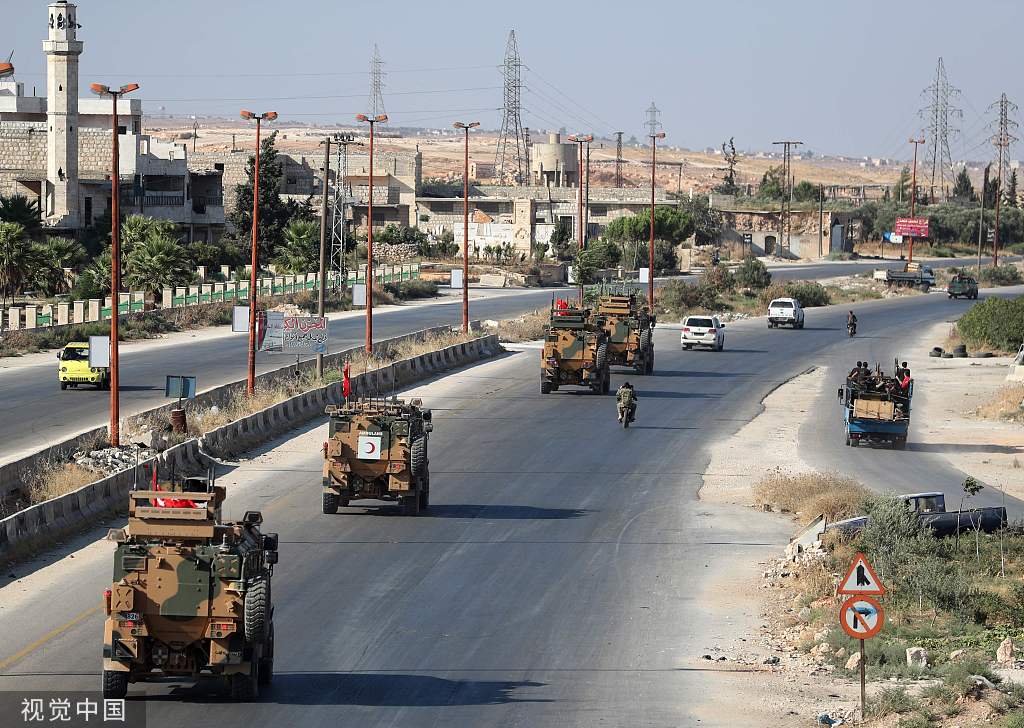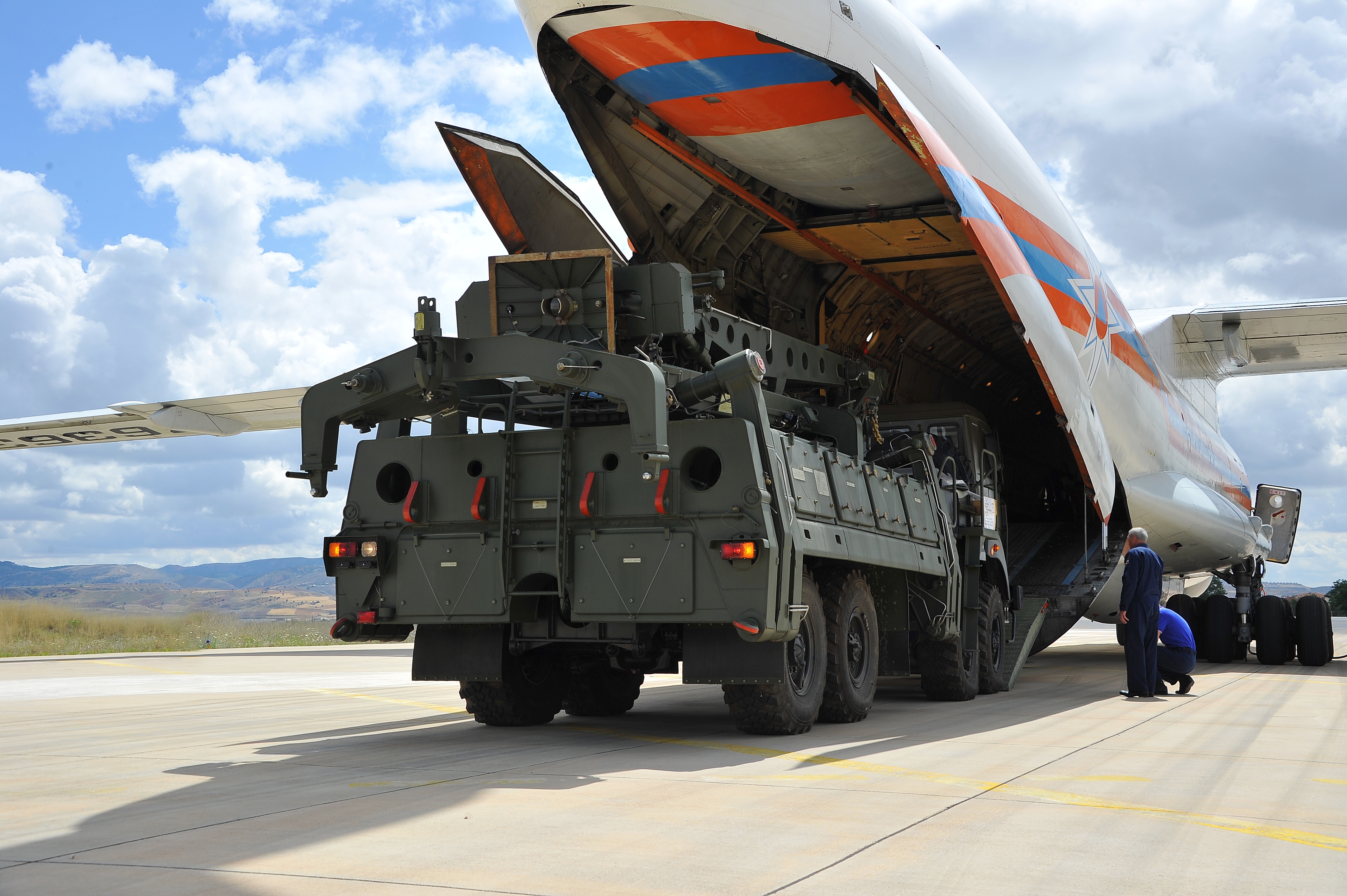Can US and Turkey really reach agreement on a safe zone?
- By Jin Liangxiang
 0 Comment(s)
0 Comment(s) Print
Print E-mail China.org.cn, August 23, 2019
E-mail China.org.cn, August 23, 2019

It was widely reported in international media in mid-August that the U.S. and Turkey had reached an agreement on issues relating to their interests in Syria.
Despite being regarded as a positive step by the two sides, the move is by no way a solution to their disputes. In fact, their bargaining over the territory of the nation state of Syria is undermining the latter's sovereignty.
Despite receiving wide attention, the agreement is still only at broadline or framework level, with the details to be the subject of further bargaining. Or, to put it another way, what the two have so far achieved is, at most, a statement of intent, a potential agreement. There is still a wide gap between them.
Generally speaking, their tentative agreement might include three aspects. The core is that the U.S. and Turkey would jointly set up a safe or buffer zone, or peace corridor, along the Turkey-Syria border on Syrian side, with the two countries jointly managing security aspects. Secondly, in order to manage their cooperation, the two would establish a joint command center in Turkey. Thirdly, the zone would be used for resettlement of Syrian refugees currently in Turkey.
The main difference between them lies in the nature of this safe zone. Turkey wants to have a 30-40 km wide and 470 km long corridor along the Turkish-Syrian border on the Syrian side to be controlled exclusively by the Turkish army.
However, according to a document released by the U.S. Embassy in Ankara, the Americans want a much narrower corridor of only 5 km to be patrolled jointly by Turkish and American soldiers, another 9km wide corridor deeper into Syria, to be patrolled solely by the latter, and a further 4 km-wide corridor for bargaining purposes. As for its length, the U.S. proposes 100 km rather than the Turkish idea of 470 km.
The huge gap in their positions reflects the deep-seated conflict between the two governments in regard to the Syrian Kurdish issue. The American purpose is to finally create a zone exclusively controlled by Syrian Kurds, acting as a staunch U.S. ally like Israel. Therefore, protecting Kurds would be Washington's prime target.

This is no way different from what the Americans had on an Iraqi Kurdish area in the 1990s, and, again, after the Iraq War in 2003. However, Turkey has a totally different approach. It regards Syrian Kurds as the offshoot of Turkey's Kurdish secessionist forces. Therefore, what Turkey wants is to gain a corridor to freely use military means to crack down on all Kurdish secessionists.
It is true the two countries might be able to reach a somewhat vulnerable agreement. They both want an agreement to improve their standing on the corridor issue.
Yet, judging by this fundamental contradiction, it doesn't seem likely they can reach a viable solid agreement. Even they do reach one, it cannot last long. No agreement based on diametrically opposed approaches can endure the test of time.
The U.S. will not accept that Turkey can cross its border to crack down on Kurdish forces, while Turkey cannot tolerate the idea of U.S. protection for such forces.
The disputes between the two on a number of other issues will also undermine the mutual trust that should be the foundation of any agreement.

The first is Turkey's purchase of Russia's S-400 defense system, which represents in American eyes a betrayal of a NATO ally.
Secondly, the two are at odds over Fethullah Gulen issue. Turkey regards Gulen as the mastermind of the 2016 attempted coup d'état, and wants him to be extradited from the U.S., which Washington rejects.
Thirdly, the U.S. has strongly criticized Turkish President Recep Tayyip Erdogan as a dictator for his efforts to concentrate political power, further adding the mistrust between them.
Last but not the least, their bargaining seriously undermines the sovereignty of Syria, for they are arguing over the disposal of Syrian territory. Syria will suffer whether from the American plan to create a safe zone for Syrian Kurds, which might lead to a semi-independent Kurdish zone, or Turkey's efforts to establish a buffer zone to crack down secessionists.
Syria is currently on the stage of rebuilding itself as a nation state after eight years of civil war, and the Kurdish region should be an integral part of that state. A Kurdish zone distant from the central government will not create a stable Syria.
Dr. Jin Liangxiang is Senior Research Fellow with the Center for West Asian and African Studies, Shanghai Institutes for International Studies. For more information please visit:
http://m.91dzs.com/opinion/jinliangxiang.htm
Opinion articles reflect the views of their authors, not necessarily those of China.org.cn.
If you would like to contribute, please contact us at opinion@china.org.cn.





